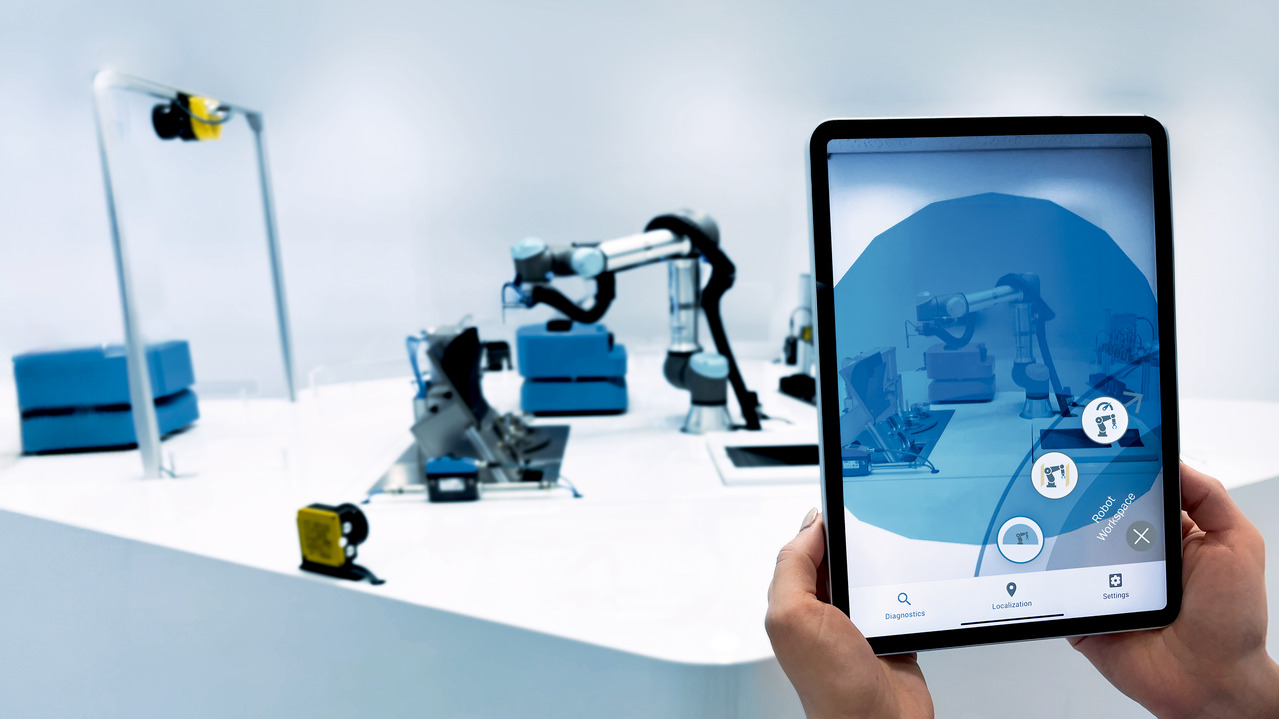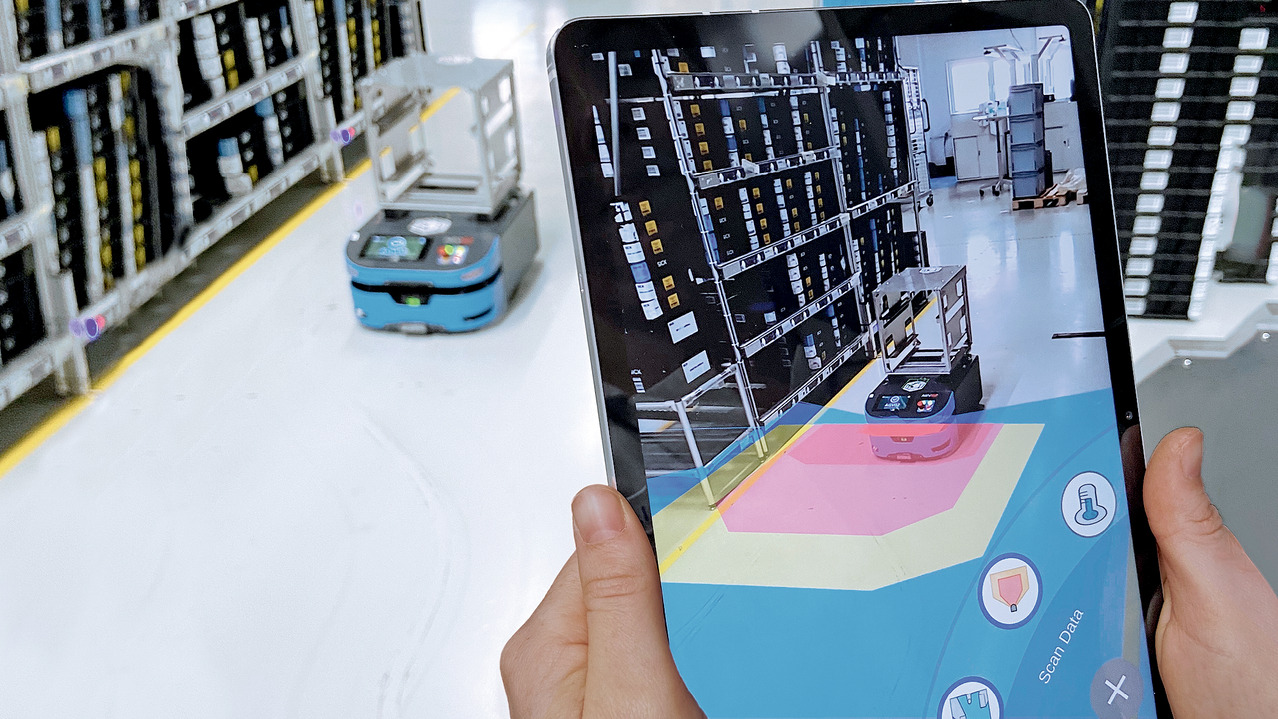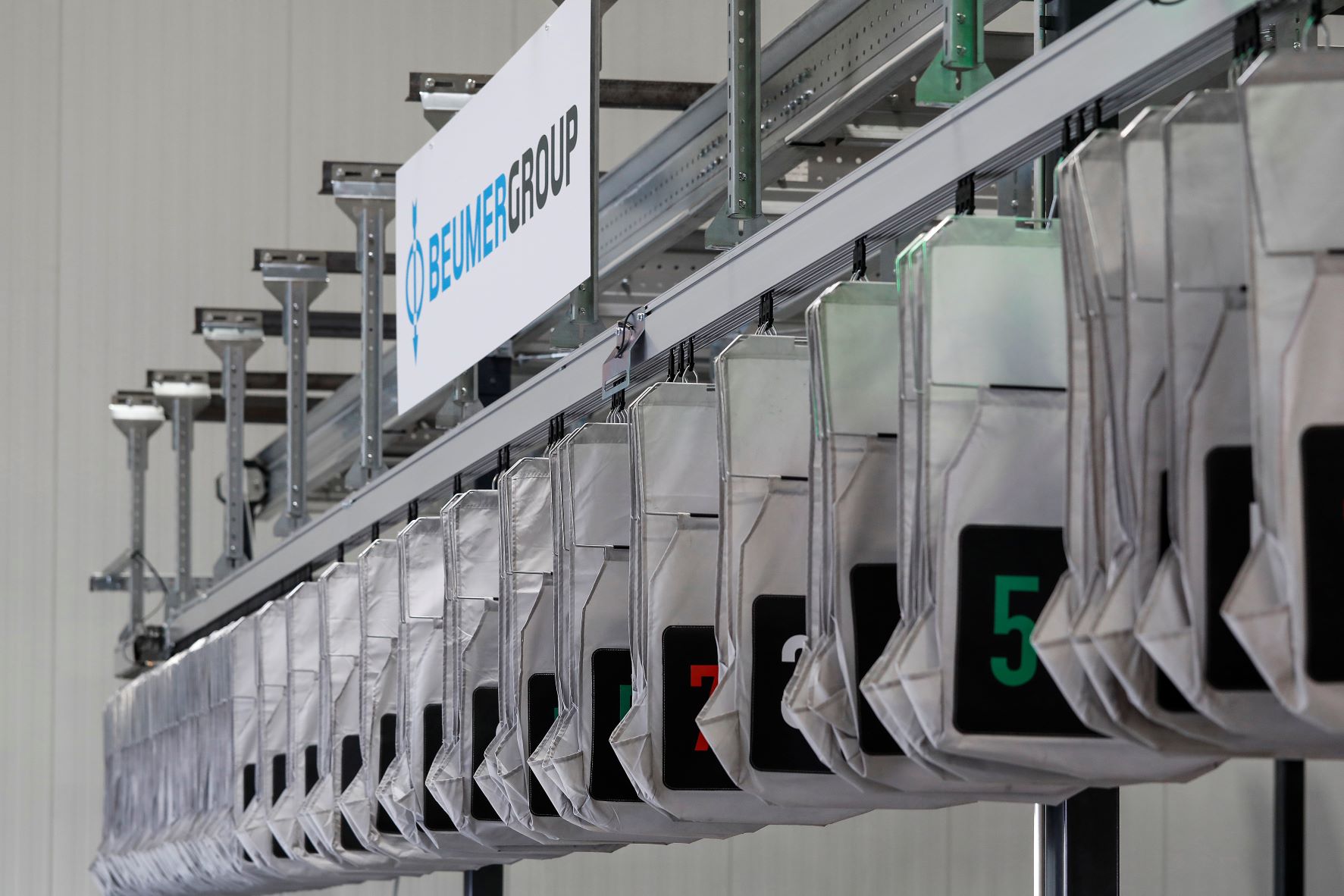SICK UK unveiled its trailblazing SICK Augmented Reality Assistant (SARA) at Smart Factory Expo 2024 in Birmingham. The intuitive augmented reality app provides data visualization and error analysis by merging machine, sensor and diagnostic information with the real environment using technology most people carry in their pocket.
With the unique SARA app, you can take data from any source and map it into the SARA augmented reality (AR) engine for review on a handheld device, such as a mobile phone, without requiring costly wearable devices or fixed HMIs. SARA provides visibility of information that can’t be seen with the naked eye, taking you directly to the site of the problem that needs maintenance.
Created in response to customer demand, SARA provides access to data and faults at the location where they arise to accelerate commissioning, diagnostic, condition monitoring and maintenance activities. The market-leading engine empowers shop floor staff to diagnose faults and monitor the performance of machines to get the best results.
Skills shortages continue to bite
UK manufacturers and OEMs are experiencing significant skills gaps and the problem is showing no signs of abating. According to the WorldSkills UK Manufacturing Excellence report , published last year, more than half (55%) of manufacturers questioned were experiencing shortages in advanced manufacturing skills and 61% in traditional manufacturing skills. Similarly, the Manufacturing Commission warned in October 2023 that labour shortages and skills gaps in the sector are costing between £7.7 billion and £8.3 billion a year in lost economic output.
With increasing use of automation, it is more important than ever to monitor and maintain machinery and prevent costly stoppages. However, the skills and recruitment problems dogging the industry are particularly acute when it comes to qualified operators and maintenance technicians. As companies require more from employees on the ground, SARA offers the ideal opportunity to upskill existing staff and get new hires up to speed fast, empowering them to carry out more tasks such as machine monitoring and basic maintenance. OEMs and equipment providers also report increasing numbers of callouts as end-users struggle to hire the maintenance staff and operators they require.
The potential applications of SARA for OEMs, equipment providers and manufacturers/end-users are limitless and as SICK UK Data Solutions Consultant Charlie Walker explained to visitors at the SICK stand at Smart Factory Expo 2024, “You can let your imagination do the talking.”

SARA was in action on the SICK stand at Smart Factory Expo 2024 as part of demonstrations of SICK products working in harmony to deliver digital manufacturing solutions. These included one demo on the use of various SICK devices (load detection, line guidance, height measurement, safety laser scanners and barcode readers) to enhance the safety and performance of AGVs, and another showcasing the vertical integration of SICK smart encoders and sensors.
With such a vast range of potential applications, SICK has created various licences (including LiDAR and Robotics variants, in addition to the Base licence) that unlock specific features of SARA to allow users to customize solutions for specific use cases. There are plans to develop further specialist licences in the future.
Charlie Walker, SICK UK Data Solutions Consultant, says, “SARA is a unique application, blending data visualization with the real environment and delivering it via the technology you have in your pocket. Using SARA, teams can reduce the risk of outages, increase machine availability and boost productivity by ensuring equipment is performing optimally.
“SICK’s SARA AR app can be used to bring employees up to speed quickly with equipment, to regularly monitor machines and to enhance safety. Codes can be scanned and linked to relevant documentation to provide access to critical information where and when it is needed. The possibilities and opportunities SARA can bring are vast and we are excited to officially launch it to the UK market to see how companies unleash its potential.”
read more




